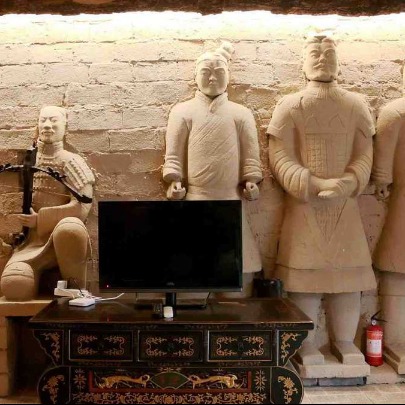


Try to picture life-sized terracotta sculptures (雕塑,diāo sù) by your side as you eat, sleep and use the bathroom. A hotel in Xi'an offering this fully immersive experience (沉浸式体验,chén jìn shì tǐ yàn) has become popular among both Chinese and foreign guests.
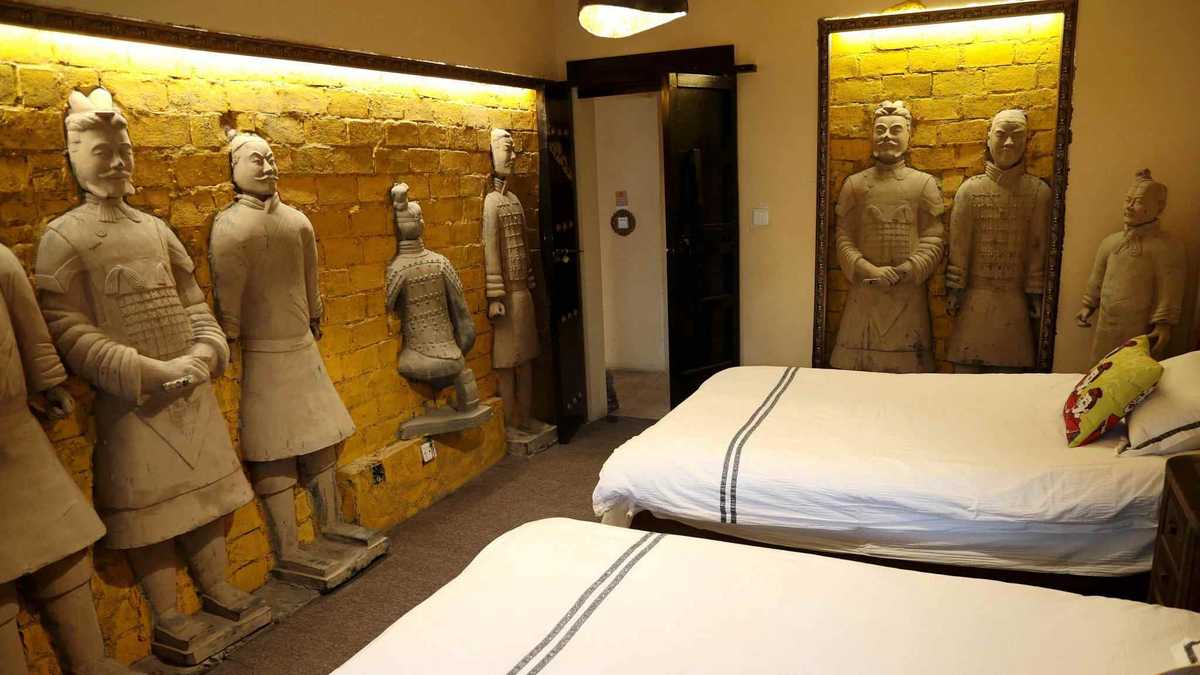
The three themed suites (套房,tào fáng), ranging from 80 to 100 square meters each, are located in downtown Xi'an, home to the terracotta army (兵马俑,bīng mǎ yǒng).
Discovered in 1974, the army is one of China's biggest tourist attractions (观光胜地,guān guāng shèng dì), drawing hundreds of thousands of visitors each year. It was built by Emperor Qinshihuang (秦始皇) of the Qin Dynasty (221 BC-207 BC) who unified China for the first time in history.
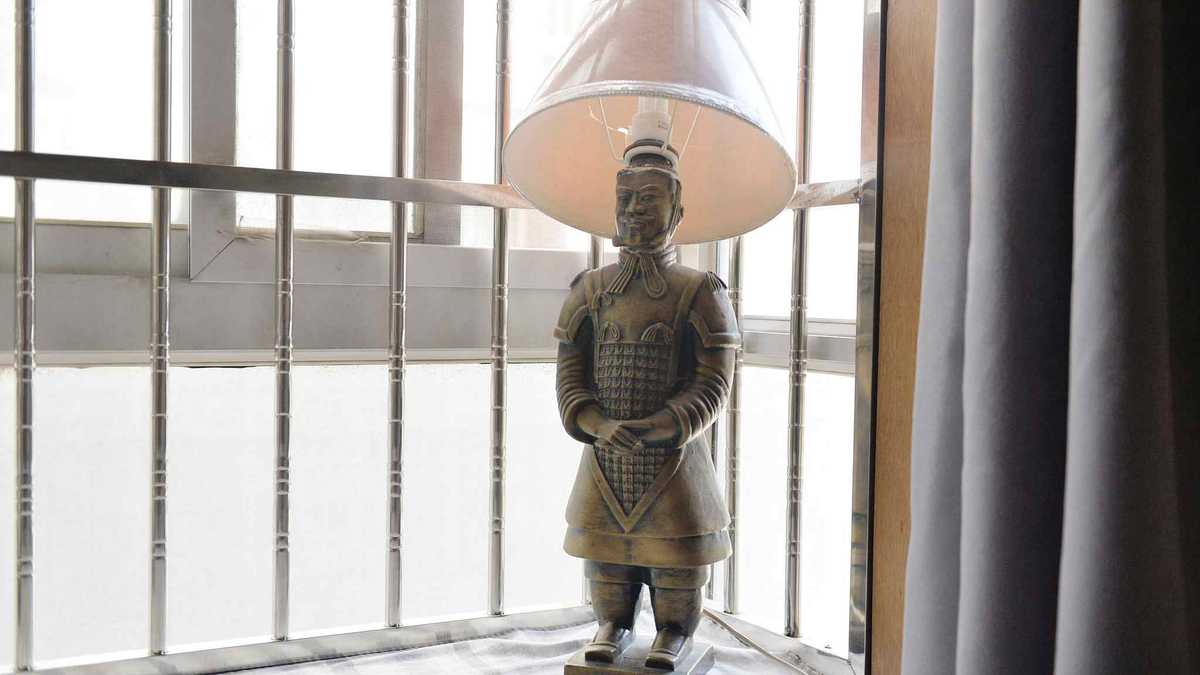
The Airbnb-style hotels are owned by Guo Zhihua, a 53-year-old Xi'an local. A taxi driver (的哥,dī gē) in the 1990s, Guo spent most of his life driving tourists to see the warriors in the Emperor Qinshihuang Mausoleum Site Museum (秦始皇帝陵博物院).
"Many of my colleagues parked their cars, smoked and chatted with each other. But I preferred to go to the pits with my passengers (乘客,chéng kè) to tell them stories about the warriors, like a tour guide (导游,dǎo yóu). Over the years, I have grown to like the warriors very much," he said.
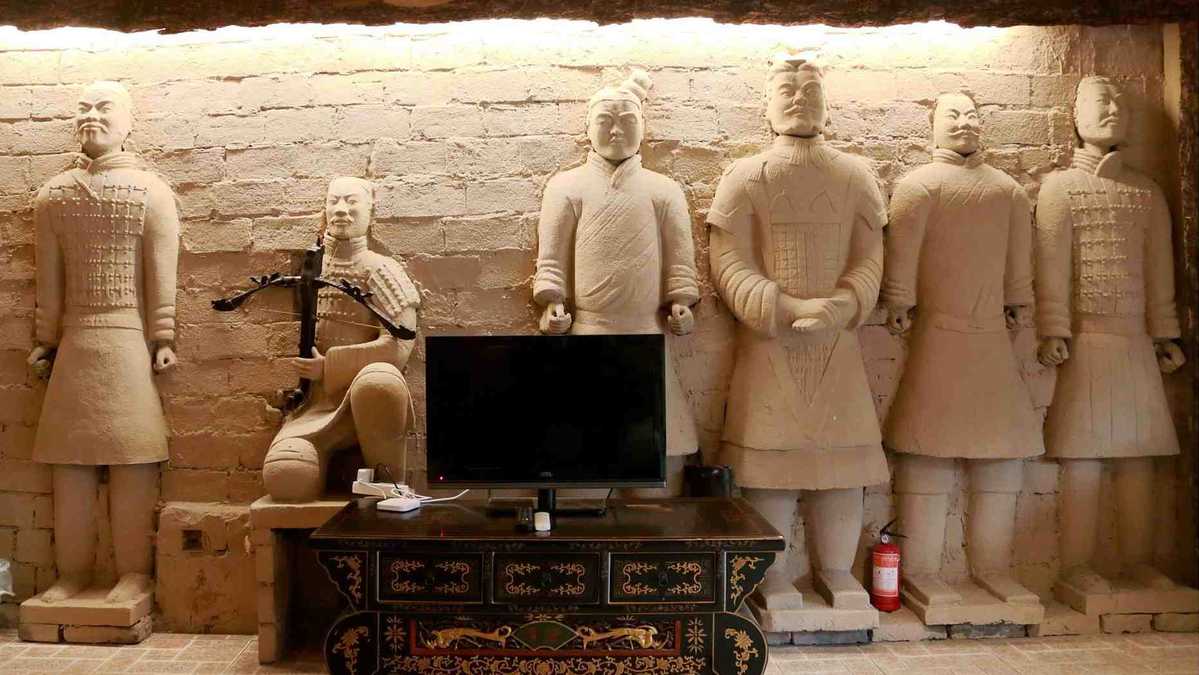
Guo placed more than 200 warrior replicas (复制品,fù zhì pǐn) in the three hotel rooms, which he named pit one, two and three. The sculptures are under the beds, the wash basins, in front of toilet seats and in the walls. Tiles and pillowcases are also painted with images of the stern-faced soldiers.
As the bed light shines through a specially-coated cover, the images of the warrior formations multiply so that the guests can feel like an emperor reviewing (检阅,jiǎn yuè) his troops (军队,jūn duì), Guo said.
Guo's rooms, costing 100 to 200 dollars a night, has drawn (吸引,xī yǐn) thousands of visitors from 30 countries and regions since the hotel opened in 2008 when Beijing hosted the Summer Olympics. "I was banking on the growing interest in Chinese history," Guo said.
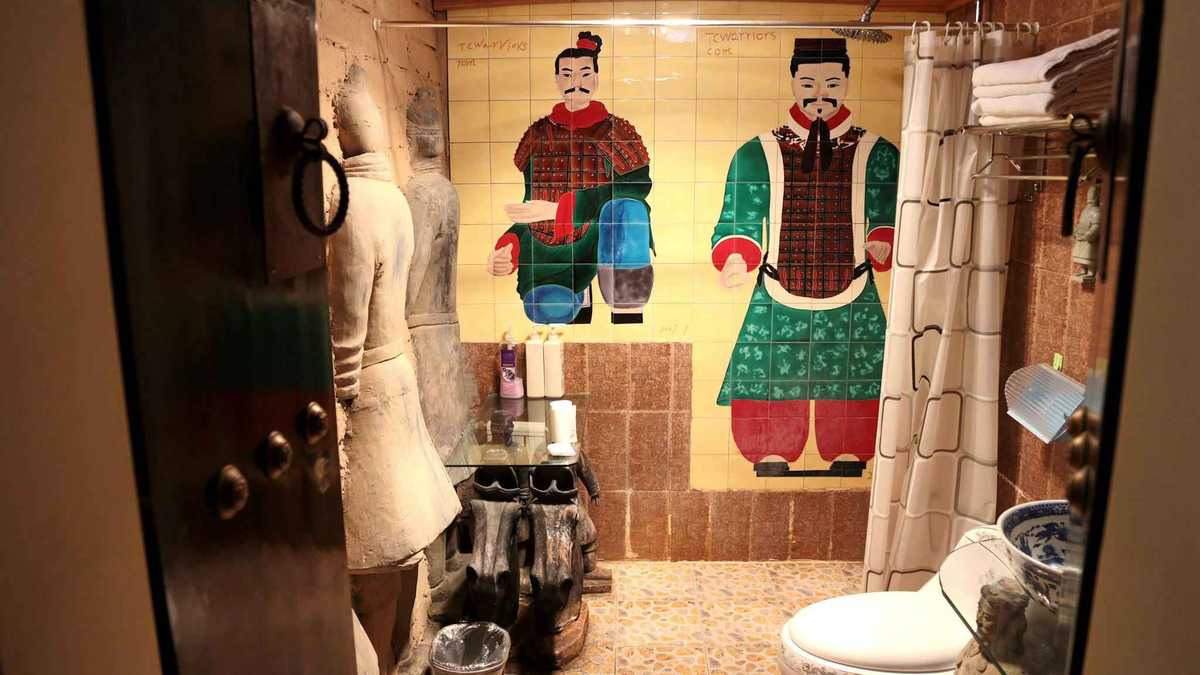
The hotels are fully booked until May. "One day, I received 400 reservations (预订,yù dìng) in two hours," he said.
Xi'an is a popular tourist site. During the three-day New Year holiday, the city received 2.453 million tourists, up 17.16 percent year on year. Tourists spent 983 million yuan ($143 million), up 24.24 percent.
Despite the hotel's rising popularity (人气,rén qì), some discount it as a cheesy replica and say it is horrifying to sleep in a tomb (坟墓,fén mù). One lodger (房客,fáng kè) complained in a viral video that he could not sleep the whole night with warriors staring him down.
Guo remains unfazed. "I'd like to offer more history-themed hotels (历史主题酒店,lì shǐ zhǔ tí jiǔ diàn) with Han and Tang dynasty decorations so overseas tourists (海外游客,hǎi wài yóu kè) can truly experience Chinese history and then back home, tourists can carry on the Chinese culture," he said.
Key words and phrases:
吸引:attract; draw
zhè gè xiǎo hái bèi xiǎo shuō de qíng jié xī yǐn zhù le
这个小孩被小说的情节吸引住了。
This child was fascinated by the plots in the novel.
duì guān zhòng hěn yǒu xī yǐn lì
对观众很有吸引力
have a strong appeal to the audience
预订:book; reservation
tā men zài jù yuàn wèi wǒ men yù dìng le yī jiān bāo xiāng
他们在剧院为我们预订了一间包厢。
They have reserved a box for us in the theatre.
tā dào qián tái qù zī xún bìng zuò le yù dìng
他到前台去咨询并做了预订。
He went to the desk to inquire and make a reservation.
Source: Xinhua
Editor: Jade
If you have any problems with this article, please contact us at app@chinadaily.com.cn and we'll immediately get back to you.